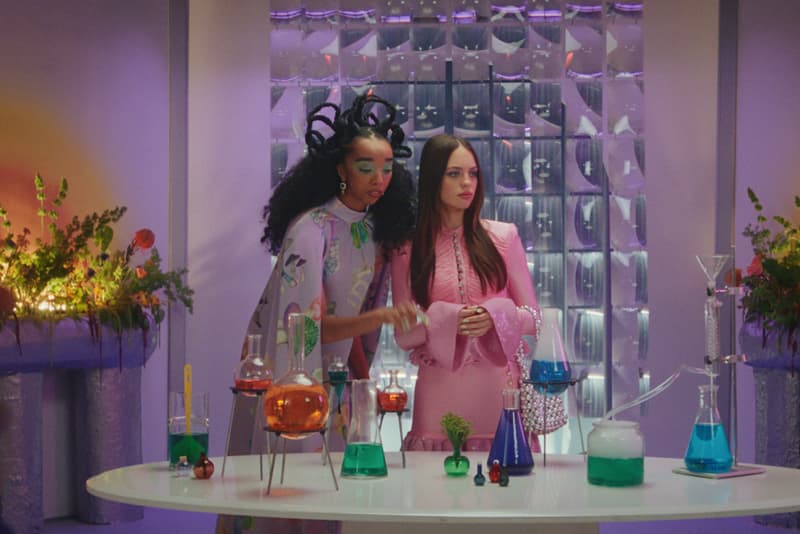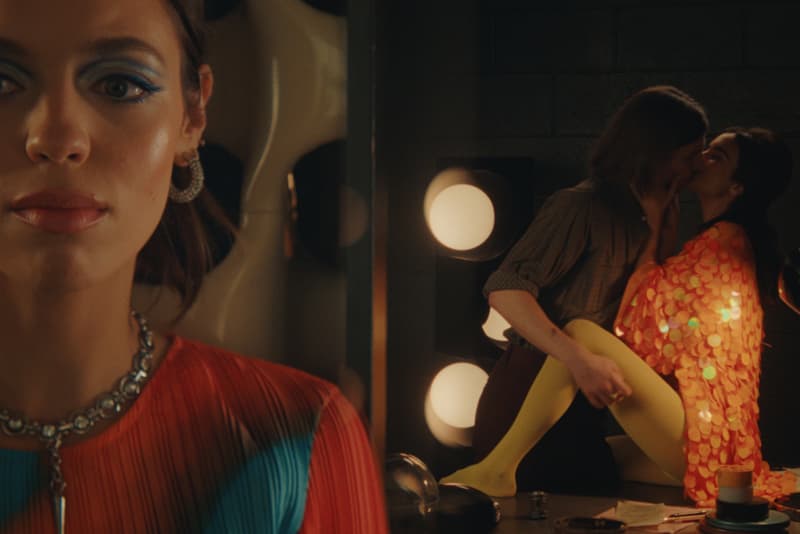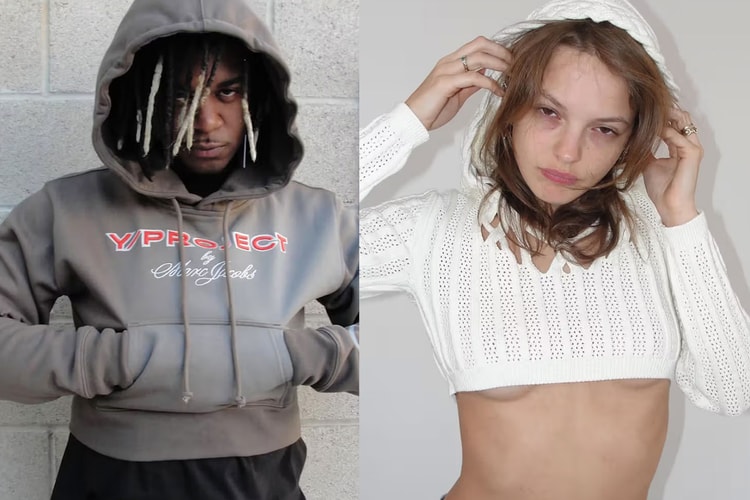

Caroline Iaffaldano Takes On Toxic Trends In Bold New Short Film
What happens when beauty “fades?” Watch the visually striking fashion film inside.
Is your beauty truly fading? Is your gut actually toxic? Or does the industry need you to believe that to sell you $30 worth of ashwagandha? That’s the new standard, and in cities like Los Angeles, toxic beauty and wellness trends reach their height, leaving filmmaker Caroline Iaffaldano no choice but to create the visually intoxicating and thought-provoking fashion short film, Vial. In conversation with us, Iaffaldano shares the story that inspired the fashion film, its portrayal of beauty, how the patriarchy fuels self-doubt and the dark reality that — brace yourself — that $30 tincture won’t save you.
“Even the items sold to make us ‘well’ can be laced with misogyny.”
Iaffaldano told us: “Vial is a modern twist on a classic fairytale following a supermodel whose allure begins to fade in an industry obsessed with beauty.” As one enveloped in a toxic beauty culture would do (cue TikTok trends), she attempts to “turn back time” by tapping adaptogenic herbs. The result? Witnessing a supermodel “spiral into an endless cycle of chasing the unattainable: eternal youth.”
Featuring gorgeous garments by beloved designers like Collina Strada, Tyler Mcgillivray, Saks Pott and Beepy Bella, “Vial examines how patriarchal structures fuel self-doubt, keeping women preoccupied with external validation rather than fostering true self-acceptance.” Before the main character realizes it, she’s donning haute couture – and deeply dissatisfied with what lies beneath.
Keep reading for the full interview and visit the Youtube video below to watch the short film.
What inspired you to create this film?
I was inspired to create this project because, at 16 years old, I started working at an alt-health juice shop, where I was quickly swept up in the world of wellness. I was selling elaborate concoctions that promised to heal everything from physical illness to heartbreak. Since then, I’ve worked four different jobs in the wellness space, even selling tinctures and earning the title of “alchemist.”
I have been on the receiving end and seen the expert marketing that can pick you apart only to sell you a product. We live in a commodified landscape where we’ve branded the sacred and in a society that makes beauty a woman’s currency, even the items sold to us to make us “well” can be laced with misogyny.
I wanted to create a film about the absurdity that is ashwagandha in your $27 smoothie keeping you young forever. The patriarchy might take form in a sparkly plant-based tincture if you’re not careful.
Talk to us about the styling in the film. What inspired you to take a retro approach?
Our stylist, Lindsey Hartman, did an extraordinary job on the film. Her eye for color, texture, and patterns is beyond anything I could have ever imagined! We aimed for a look that felt both modern and retro, blending contemporary designers with vintage pieces and nostalgic silhouettes to create a truly unique, otherworldly fashion experience.
Since the film explores themes of overconsumption, we didn’t hold back when it came to wardrobe. Every character and extra is dressed from head to toe, with each outfit begging to be seen and fighting to take center stage.
How did the fashion partnerships come about? Was this intentional or more so “kismet?”
The partnerships in this film were both intentional and kismet! I loved working with so many of the brands who graciously donated and collaborated with us.
Millie Savage donated a stunning collection of jewelry pieces, which was especially meaningful since she’s been my jeweler for years. She also hired me for my first commercial project, and I directed a video for her a few years ago. It truly felt like a full-circle moment!
Similarly, Clio Peppiatt loaned us one of their striking beaded dresses, and I had previously designed a piece with them. It was incredibly rewarding to see so many talented artists come together, contributing to the creation of such a vibrant and fun world.
In your time critiquing the wellness industry throughout this film, what was the wildest thing you noticed about the industry?
I’ve had some truly wild experiences—like someone calling the police over an expired juice or my ex-spiritual mentor/wellness practitioner posting our private sessions on her IG stories. But beyond that absurdity, what frustrates me the most about the wellness industry is how it places personal blame on people for their health struggles.
The industry thrives on the idea that if you just buy the right product, your chronic illness, disease, genetic predispositions or even environmental factors can be “fixed.” It’s a dangerous, black-and-white mindset—especially in a country without universal healthcare, where access to medical treatment is a privilege, not a guarantee.
Health is so much more than diet and supplements; it’s a lottery, and we’re not always in control. Yet, wellness culture convinces people they’re never doing enough—and that’s exactly how it keeps them coming back.
If there’s one thing you want viewers to take home from this film, what would it be?
Your soul is your real self and our planet needs you to show up in your totality, uniquely as you are. That is your medicine and it cannot be bought or distilled into a product.
In other news, Miley Cyrus announced her new album, Something Beautiful.



































